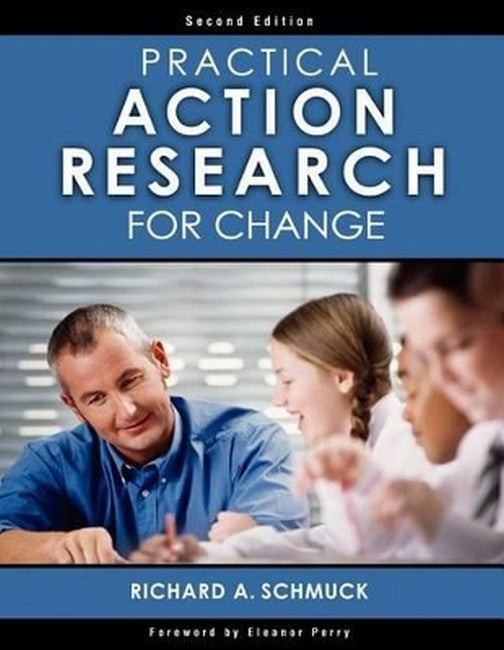Richard A. Schmuck is professor emeritus at the University of Oregon, where he chaired the dissertations of 132 doctoral students who are from all parts of the world. He taught thousands of other educators worldwide about action research, group dynamics, and organization development. He has served on the faculties of the University of Michigan, Temple University, and Leuven University (Belgium), was the first president of the International Association for the Study of Cooperation in Education. Schmuck is a visiting Professor at Arizona State University-West. Schmuck is the author of 20 books and 190 articles. His best-known book is Group Processes in the Classroom (with Patricia Schmuck), now in its eighth edition. He received The Stevens Award from the Northwest Women in Educational Administration to honor his support of women in administration and his "commitment to equity, justice, and democracy." He received the Campbell Lifetime Achievement Award from the University Council on Educational Administration for "superior scholarship, distinguished service, and recognized international leadership" and "to celebrate an extraordinary and generous career." Schmuck continues to teach, consult, and write.
Request Academic Copy
Please copy the ISBN for submitting review copy form
Description
Foreword Preface Acknowledgments About the Author 1. Reflective Professional Practice Reflections of the Future, Past, and Present Reflective Educators Seek Self-Knowledge The Search for Self-Knowledge Leads to Solitary Dialogue Self-Knowledge and Solitary Dialogue Lead to Professional Maturity Mature Educators Try to Improve Continually Using the Tools of Reflection to Move Toward Action Research Journal-Writing Assignments 2. Educators and Continuous Improvement Three Faces of Continuous Improvement Action Research: Two Types of Social Scientists Differences Between Action Research and Traditional Research An Example of Action Research Processes of Continuous Improvement Journal-Writing Assignments 3. Action Research: Definitions, Models, Steps, and Phases Contemporary Need for Action Research Definitions of Action Research Action Research and Group Dynamics Two Models of Action Research Three Phases of Action Research Journal-Writing Assignments 4. Research Methods: Procedures, Instruments, Special Issues, and Ethics Data Collection in Action Research Special Issues of Action Research The Ethics of Action Research Journal-Writing Assignments 5. Proactive Action Research Marilyn Lund James Johnson The Six Steps of Proactive Action Research The Range of Proactive Models Journal-Writing Assignments 6. Responsive Action Research Matt Reardon Beverly Lee The Six Steps of Responsive Action Research The Range of Responsive Models Journal-Writing Assignments 7. Group Dynamics of Cooperative Action Research Positive Social Support Critical Friendship Probing Conversation Effective Group Dynamics Journal-Writing Assignments 8. Types of Cooperative Action Research One-on-One Partnerships Small Face-to-Face Groups Whole-School Staffs Districtwide Educator Networks and Stakeholders Case Studies Journal-Writing Assignment 9. Prominent Authors on Action Research Its Democratic Philosophical Roots John Dewey, Mary Parker Follett, and Kurt Lewin Alice Miel and Stephen Corey Ronald Lippitt Paulo Freire Reginald Revans Chris Argyris and Donald Schoen Stephen Kemmis and Jean McNiff William Foote Whyte Richard Sagor Geoffrey Mills Teacher Research Journal-Writing Assignment Bibliography Index
"This book is a modern catalyst for change in higher education. I have made it required reading for doctoral students, administrators, and faculty who must update their pedagogy to raise student learning." -- Joseph Martin Stevenson, Provost and Vice President for Academic Affairs "This is a wonderful book for learning communities to use to self-evaluate prior to beginning new teaching techniques, and throughout the process." -- Donna Walker Tileston, President "A comprehensive tool to support learning communities as they endeavor to improve professional practice." -- Curriculum Connections, Spring 2007

